View current news articles, commentary, videos and more having an impact on Jewish culture, politics and religion at Rabbi Silverman's Sites to See
We are all fallible. That seems to be the theme of the last sections of Deuteronomy as we approach our High Holidays. Great blessings and curses have been pronounced in Ki Tavo, which we just studied a few Shabbats back. Moses is about to die and because he sinned, he will not be entering the land. But he has high hopes at this moment, standing in the hills of Moab overlooking the land. The tribes of Reuven, Gad and Menashe have all inherited the lands to the east of the Jordan after the Israelites, with God's help, defeated the kingdoms of Bashan and Emor. Joshua gets an added letter “Heh” in his name from God, and Moses places his hands upon him and confers his prophetic spirit upon him. The people stand rooted with a new covenant of loyalty to God, and God to them.
Imagine his disappointment when God informs Moses that he is to teach them a special song of Haazinu, which they almost surely will need when they sin and go astray toward other gods and foreign practices that they encounter in the lands that they conquer! God tells Moses there is an antidote; a song in our Torah that they must be schooled in, so that when they end up in exile and among other peoples, they will have a modality with which to articulate their repentance, their remorse, and most of all, their rekindled hope and faith. And Moses dutifully does teach this song, which brings witness of Heaven and Earth- of God's loyalty and love to the Hebrews. He deposits it on the side of the Holy Ark to be carried into the land of Israel, which God will give them, and shortly thereafter climbs up Mt Nebo to die.
Moses dies, al Pi HaShem, "according to God's mouth," which Midrash tells us means that he died with a Divine Kiss painlessly. Yet missing is the notion that he died, Zaken ve Saveah be Yamim, "very old and contented of days," which is the description of how the Patriarchs die. And that could be due to his disappointment in his life's project–Not just that he doesn't merit the chance to enter the land where he had been leading the Israelites too, from the time of the exodus from slavery for forty years, but because his life's work during that wandering was devoted to imparting to them a Torah; a regimen for living and belief, that would ensure they would remain ensconced forever in the land of Israel. And Moses' life's work at the end may have seemed so fragile to him, in that God was certain that they would not necessarily adhere to it. Moses dies with this uncertainty weighing upon him which may explain the lack of full contentment.
The Torah message here is not to despair. It's to understand that all of us are fallible. Moses is fallible, which is why he didn't enter the Promised Land in the first place. The new generation, though equipped with grit confidence and new covenant, is fallible, which is why they will, in due time, need a song to sing in exile. And we too are fallible and have much work to do always in the domain of Torah, Jewish practice, and faith.
But help is always on the way! The core value in our religion is that we can interconnect with each other's strong points by being involved and intertwined with one another, and be inspired by one another– the core value in our religion is never to separate oneself from your community; the core value in our religion that prayer and study of Torah draws down the Divine presence, prayer in a minyan and study even with a partner (one sage says if you bat different opinions back and forth that also qualifies); and finally, the core value in our religion that our song is Rosh Hashana and Yom Kippur– that season of Selichot and Repentance that sweeps in every autumn. These ten days of repentance ushered in by the trembling thunder of shofar is our moment of "on your mark, get set, go"– reach for something more spiritually, morally, ritually. Rosh Hashana and Yom Kippur teach our core value that you will never be perfect, so what will you do to refine yourself more this year, to enhance what it is you already have expressed in your Jewish commitments? Surely you can take on more learning! Surely you can commit yourself to more community involvement with your precious synagogue. Surely you can help with our minyan a few times a week from home by jumping on Zoom to make prayer more of constant in your life. Surely you can resolve to support your synagogue and help ensure it's future when so much of Jewish institutional life struggles through the uncertainty of COVID-19.
This pandemic has added a barrier to our spiritual journey– to build ourselves into more of who we maximally are as Jews each year. It's such a challenge when we can’t do things by physically coming together at present. We need not be so frustrated by this that we withdraw and retreat. We should all be thankful for the resourcefulness of our tech team Allan Berman (and his family) and Rick Kessler, and for the generosity of those who have made live streaming a reality for the duration of this pandemic. Get on Zoom with me Thursday nights this year, as we embark on a 13 unit study of "What our sources teach us in the shadow of a Pandemic." I guarantee it will deepen your appreciation in the richness of Jewish wisdom.
Thanks are in order. Thank you to Hazzan Walvick, whose tech creativity has been inspirational and a guide to me over these months, and who, under such tough time restrictions, continues to enhance our prayer. I thank Robin Kain and Ed Isaac and those who have assisted them, for all their excellent work in bringing us Rosh Hashana and Yom Kippur as best we can do as a physical community this year. I thank Mary in the office for all of her skills in keeping us linked together, and Sue Kazzaz for her work on the website and e-weekly, and for helping to screen share for Adult Education Zooms. Live stream is an excellent option for those who choose to stay home this year, which is, for many, the right choice. Zoom or live stream into our weekday and Shabbat services (we have easy directions available to make it "Shabbat friendly"). Take part in activities we endeavor to do together outdoors. Consider coming to our Shabbat morning service in the shul, in which we are scrupulously adhering to medical protocol. Make your way toward the intimate circle of relationship envisioned by the Torah between God and the Jewish people. Yes, we are all fallible, and yes, we all surely sin and fall short since we are human. Even Moses did, and even the blessed generation that entered Canaan did. But never let that stop you from singing the “song of Torah” and taking the steps that bring you closer to what you might maximally become in your Jewish life, and to this let us say, AMEN
From Beth and I, Marc and Alan, May we all be written and sealed, and help write ourselves into the Book of Life, Health, Joy and Contentment this coming year 5781.
